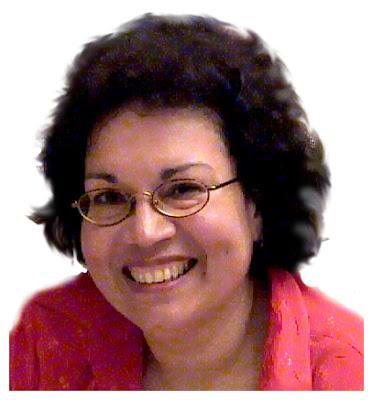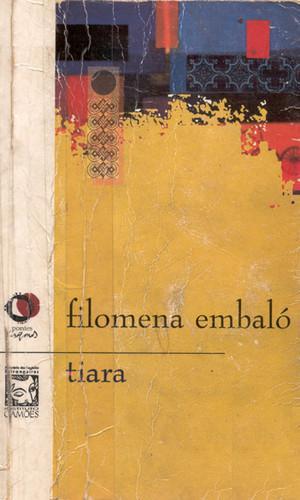Discussions of the literature of Portuguese-speaking Africa produce very few names from Guinea-Bissau.That was from Moema Parenta Augel's chapter on Guinea-Bissau in Patrick Chabal's 'The Post-colonial Literature of Lusophone Africa'. I would like to add that even less so in these discussions of Lusophone African writing are women writers from Guinea-Bissau. Indeed, a google search of writers from Guinea Bissau brought up an initial list of eight writers - all of which were men. This made me wonder about women writers especially as Moema Parenta Augel goes on to write:
... commentators on the literature of Portuguese-speaking Africa are equally parsimonious in their references to Guinea-Bissau or are completely silent, seemingly unaware of the subject ... [and] In the realm of prose fiction the Guinean literary production is minimal.Yet, in my search I initially came across two women writers - Domingas Samy and Filomena Embaló. A third - Maria Odeta da Costa Semedo - I found out through a PhD thesis on women, men and fiction in Guinea-Bissau.
Finding out about these three women writers was a moment of excitement for me (yes, I get super excited by these kind of things) but then the next stage was finding out more about them. That in itself was a struggle, as it was extremely difficult to find a lot of things in English on these three women. It is, of course, clear to see why as the first novel to be translated into English from Guinea Bissau was only published this month by Dedalus Books. In fact many things I found were in Portuguese (some also in Spanish) - and this post is a reflection of my non-existent understanding of Portuguese (and close to non-existent understanding of Spanish).
Next on my list, however, is Dr. Filomena Embaló, who is the first woman in Guinea-Bissau to have written a novel, according to Francesca Frascina's PhD on women, men and fiction in Guinea-Bissau.

The novel in question is Tiara, published in 1999 which Franscina describes as
the biographical account of a particularly strong and determined young woman who flees to the fictional but obviously connoted former colonial metropolis Terra Branca from the civil war in her equally fictional home country Porto Belo. In the generic European country, the continent being homogenised as socially and climatically cold, rainy and, of course, white, she meets and marries a guerrilla fighter from another fictional country, Muriti, which is still fighting for independence from a colonial power. She returns with him to his homeland to play an active role in the liberation struggle via women’s education and then after the war in the Ministry for Justice.

The little I was able to decipher about Embaló is that she was born in Angola in 1956 to parents from Cape Verde, moved to Guinea-Bissau in 1975 and eventually became naturalised there. Embaló has also held various civil service positions in Guinea-Bissau.
In addition to Tiara,
Embaló wrote a short story collection, Carta aberta in 2005 and I also found a co-authored edition of the Brazilian journal PAPIA published in 2010 on literature, language and culture in Guinea-Bissau - 'Literatura, lingua e cultura na Guine-Bissau', a couple of poems written by Embaló in 2014 (Detahles) and in 2015 (Os Mestres Do Mundo) - both translated into Spanish (I wonder if these come from Embaló's 2008 poetry collection Coraçãocautivo); as well as a piece in Portuguese on the history of cinema in Guinea-Bissau in 2016. Embaló also contributed to the Guinea-Bissau cultural project, Didinho and in 2009 wrote about what contributing to the project meant to her.I would, of course, love to find out more about Embaló who seems to write a lot on Guinea-Bissau's literary and cultural history; and who Franscina writes is 'an avid campaigner for women's rights in Guinea-Bissau' and tackles certain issues such as female genital mutilation in her writings on Didinho.

